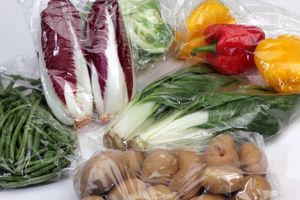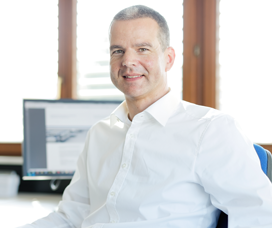The packaging industry is looking for solutions to reduce high plastic consumption. The use of individually controllable machines considerably reduces the need for plastics.
Plastics are ubiquitous today: when showering in the morning in the bottles of shampoo and shower gel, with yoghurt and other dairy products in plastic cups on the breakfast table, on the road in the car or in the smartphone. Computers, telephones and other objects at the workplace are also made of plastic. The material is practical, because it weighs very little and can be used in many different ways - and is therefore an indispensable part of everyday life. Since the 1990s, the number of packagings in general has increased considerably in Germany, but the strongest increase has been in the number of plastic packagings. The negative consequences of the high consumption of plastics today are plastic mountains, which do not simply rot, and plastic carpets in the oceans, which endanger marine life and enter the food chain in the form of microplastics. In addition, plastic is synthesized from the limited resource crude oil, which is why alternatives are necessary. Despite this obvious need for action, forecasts predict even higher material consumption, as plastic consumption in the emerging markets will continue to rise significantly. Even the industry, which consumes large amounts of plastic, is rethinking. Especially in the packaging industry a lot of plastic has been used so far, so engineers are looking for alternatives or packaging variants that require less plastic material.
Potential savings by the kilometer in food packaging
In the food industry in particular, plastic packaging is often the preferred choice. Because plastic material protects particularly well during transport and guarantees hygienic standards. In supermarkets, which also offer organic products in addition to conventionally grown fruit and vegetables, film packaging ensures that the two product groups do not mix. Even if plastic is not replaced by other materials in the future, the savings potential is immense. A good example is the popular 3-color pepper mix. The plastic tubular bag in which the fruit is packed should be as suitable as possible. Machines that produce the packaging to the length actually required and that manage without a general safety margin save several kilometers of plastic film a year. Assuming that the machine requires an extra five to ten millimeters and packs 300 goods per minute, this corresponds to unnecessary film consumption of between 720 m and 1.4 km in an 8-hour shift without downtime. With a standard two-shift operation and 20 working days per month, the savings potential adds up to 345 to around 700 km of film in one year.
Jetter technology helps to reduce film consumption
The automation specialist Jetter, based in Ludwigsburg, Germany, employs modern servo technology to offer industrial customers several options for saving plastic in the packaging process. The flat film used for tubular bags in particular is very difficult to recycle - here savings have a particularly large environmental benefit. This is why Jetter relies on agile packaging processes in which packagings can be produced individually for each product. The automation specialist from Ludwigsburg focuses on the requirements of the machine builders. "Mechanical engineering companies do not want special solutions, but standardized drive technology. Jetter's control technology is very helpful in this respect: We offer the necessary flexibility. Our goal is to fully utilize the possibilities of Jetter control technology in cooperation with packaging machine manufacturers. We want to noticeably reduce film consumption - without having to make major modifications to a machine," explains Michael Feider, Vice President Sales and Marketing.
Jetter will present current developments in the field of agile control solutions for packaging machines at the FachPack trade fair in Hall 3, Stand 417 from 25 to 27 September in Nuremberg.




